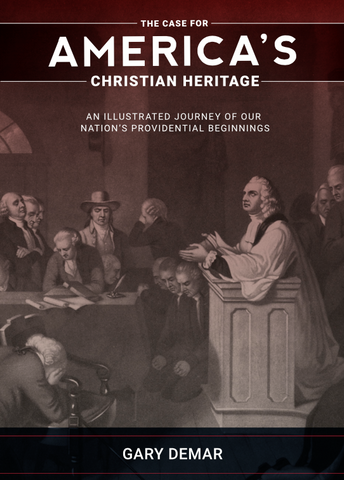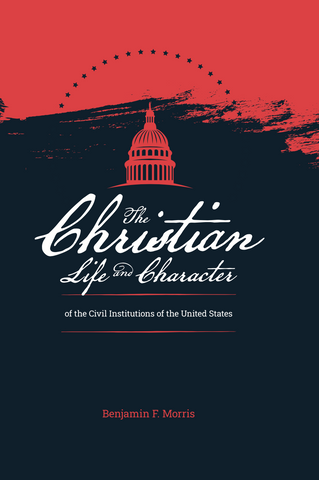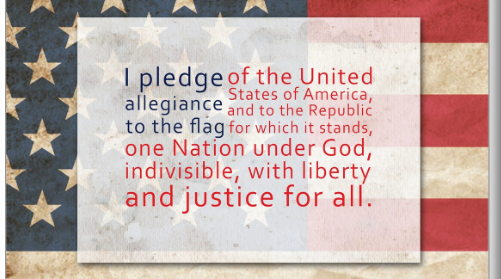Over time, the Pledge of Allegiance has changed. The original Pledge read as “I pledge allegiance to my Flag and the Republic for which it stands, one nation, indivisible, with liberty and justice for all.” The word “to” was added before “the Republic” in October for the public recitation. This is the only difference from the original published version. “My flag” was changed to “the flag” in 1924 by the National Flag Conference. Later, the words “of the United States of America” were added after “flag” to create a sense of national loyalty among immigrants who chose America as their new home. The words “under God,” taken from the Gettysburg Address, were added by an act of Congress in 1954.
To tell the truth, the Pledge should read “one nation under Darwin” or “one nation under the divine State.” The second phrase is long and awkward, but it’s closer to the truth than “one nation under God,” if we mean by God the God of the Bible, which the phrase originally meant.
Those who often argue for “under God” do so by declaring that it has no religious meaning. This was the view of the lawyer representing the U.S. government, then Solicitor General Theodore Olson. “Olson argued that the phrase is viewed as an ‘acknowledgment’ of religion’s role in the lives of America’s founders.”[1] Olson defended homosexual marriage in California. It’s not that our nation is actually under the sovereign rule of God but only that people once believed that it was. Olson is not alone in using this line of argument:
Many pledge proponents offer secular justifications to fit Supreme Court rulings. They claim “under God” isn’t any sort of religious exercise or prayer but simply a factual acknowledgment of the nation’s past heritage of faith, for patriotic rather than religious reasons.[2]
Given this line of argument, why not rewrite the Pledge to read, “I pledge allegiance to the Flag of the United States of America, and to the Republic for which it stands, which people used to be believe was one nation under God, indivisible, with liberty and justice for all.”
If we follow Olson’s claim that the phrase should be viewed as nothing more than an “acknowledgment” of religion’s role in the lives of America’s founders and not an “endorsement” of God, why not replace “one nation under God” with “one nation under slavery”? Children would not be “endorsing” slavery, but they would be acknowledging slavery’s role in the founding of America. Olson’s line of reasoning cannot be supported by a careful study of history or the background of the “under God” addition.
“Under God” was added to the Pledge in 1954. We were in the middle of a Cold War with the Soviet Union. Congress wanted to distinguish America from atheistic Communism. The goal wasn’t an acknowledgment that America at one time had been religious. If that’s all it was, then the Soviet Union could have a similar pledge, since at one time Russia was very religious. “Under God’ was a statement that America was at that time, in 1954, officially theistic.[3]

The Case for America's Christian Heritage
There’s much work before us to reset the foundation stones of a firm reliance on Divine Providence. We need to heed the words of Benjamin Franklin who quoted Psalm 127:1 during the drafting process of the Constitution: “except the Lord build the house they labor in vain that build it,” and “that without His concurring aid we shall succeed in this political building no better, than the Builders of Babel.” The principles that were true and necessary centuries ago for building nations are equally true and necessary today.
Buy NowI Pledge to Whitewash History
To be consistent, anti-under God Michael Newdow wants every religious reference removed from all official U.S. documents. This would mean a rewrite of the Declaration of Independence, the U.S. Constitution, and all 50 state constitutions, or at least the creation of an archival system that would allow students to see these documents only after they graduate from their government schools and are truly free citizens or if they get a note from mommy and daddy giving them permission to see the “historical pornography.”
If “under God” is removed from the Pledge, to be consistent, new coins would have to be struck and paper currency reprinted so they would no longer carry the motto “In God We Trust.” Francis Scott Key’s “Star Spangled Banner,” our National Anthem, would have to be rewritten because it carries the line, from which our nation’s motto is taken, “In God is our trust.” Of course, this is what the atheists want.
The Supreme Court opens each session, even the one where Pledge cases about “under God” is considered, with a marshal saying, “God save the United States and this honorable court.” This would have to stop. And I guess government employees could no longer claim December 25th as a paid holiday because it would be an endorsement of the Christian religion. This is the case I would like to see argued before the Supreme Court. To be consistent, all government employees would have to work on Saturdays, Sundays, and Christmas. Allowing government workers off on these days is an implicit endorsement of the Christian religion. Saturday is also a religious day for Jews. Public schools should also be open on Saturday and Sunday because they are religious days. We don’t want to give the appearance that the government is endorsing religion. Give government workers and public-school kids Monday and Tuesday off. There would be a practical benefit in addition to the required secular status of the days off. The nation’s highways would be less congested on these two non-religious days since government employees and public-school children would be at home, sleeping in on their weekend.

The Christian Life and Character of the Civil Institutions of the United States
Organizations like the ACLU and Americans United for Separation of Church and State have done their best to ignore the content of the massive compilation of original source material found in this book. If Americans ever become aware of the facts assembled by the author in this historic encyclopedia of knowledge, arguments for a secular founding of America will turn to dust. Reprinted by American Vision for the first time in over 140 years in 2007, we can't keep this book in print!
Buy NowPledging Objections
Will the Pledge be non-religious if “under God” is removed? Not at all. First, pledging allegiance is a religious act, especially when it’s done in a formal setting like a government school. To take “under God” out of the Pledge implies that the United States Government is God.
Second, prior to the official adoption of the Pledge by Congress, students were saluting the flag while they stated the following: “We give our heads and our hearts to God and our country; one country, one language, one flag.”[4] Adding “under God” in 1954 only reinforced what most Americans believed and nearly every school taught in the post-war years.
Third, there is no historical basis for a secularized America. If our nation’s motto “In God We Trust” stamped on our coins is not a constitutional breach, then the insertion of “under God” in the Pledge cannot be. The same is true of the Senate Chaplain and the Congressional Prayer Room.
Fourth, the argument is often raised that “under God” was added to the Pledge in 1954 making it unhistorical. The Pledge has gone through several revisions. Originally the Pledge was known as the “Salute to the Flag.” The name change occurred in 1942 when the original flag salute looked too much like the salute Germans were required to give to Adolf Hitler as they said “Heil, Hitler!” In addition, the original Pledge did not include the words “of the United States of America.” And instead of “I Pledge Allegiance to the flag,” it originally read, “I pledge allegiance to my flag.” If “under God” is going to be disputed because it was added to the original Pledge, then the same must be done with these other additions, and we should renew the original salute.
Fifth, some people object to “under God” being recited in the Pledge because “they believe it trivializes faith or ‘takes the Lord’s name in vain”[5]—a violation of the third commandment: “You shall not take the name of the Lord your God in vain.” At first sight, this seems like a legitimate concern. But “God” is not God’s name. Would it be wrong for people to state the following on a daily basis?: “Blessed is the nation whose God is the LORD” (Ps. 33:12a, cf. 144:15b). The Hebrew underlying “LORD” is God’s name Yahweh or Jehovah. Actually, saying that our nation believes our nation is under God is what it means to take God’s name in vain.
Sixth, anti-under-God people believe that including “under God” in the Pledge is a “slap in the face” to an atheist. In many of the articles I’ve read on the subject, this is the argument that is seen as a “slam dunk.” This response is typical of those who believe that taking God out of the public square is neutrality rather than atheism. Contrary to popular opinion (propaganda), there is no neutrality.
Seventh, when President Dwight D. Eisenhower (1890-1969) signed the act introducing “under God” to the Pledge of Allegiance in 1954, he said, in part:
In this somber setting, this law and its effects today have profound meaning. In this way we are reaffirming the transcendence of religious faith in America’s heritage and future; in this way we shall constantly strengthen those spiritual weapons which forever will be our country’s most powerful resource in peace and war.
Notice how Eisenhower’s words differ from how Ted Olson argued for “under God.” Not only is America’s religious “heritage” in view, but her religious “future” is also emphasized. And for what purpose? So that “we shall constantly strengthen those spiritual weapons which forever will be our country’s most powerful resource in peace and war.”
The Pledge’s Origin
The earliest version of the Pledge of Allegiance was written in August 1892 by Francis Bellamy, a newspaperman, who wrote for Youth’s Companion magazine. The original Pledge appeared in the September 8th issue of the magazine and was first recited in public at a Columbus Day program on October 12, 1892, the 400th anniversary of Columbus’s discovery of the Americas. To celebrate the anniversary in a big way, Chicago held the World Columbian Exposition. This was before celebrating anything about Christopher Columbus became politically incorrect.
The Forgotten Francis Bellamy
Bellamy, the author of the original Pledge of Allegiance was a Baptist minister. He was the first cousin of Edward Bellamy, author of the socialist utopian novels Looking Backward (1888) and Equality (1897). John W. Baer, the author of The Pledge of Allegiance: A Centennial History, 1892-1992, writes that “it never would have occurred to Francis Bellamy to put ‘under God’ in the Pledge, at least according to what he had to say at the time.” While Bellamy preached sermons on topics such as “Jesus the Socialist” and “The Socialism of the Primitive Church,” over which he lost his pulpit at Bethany Baptist Church in Boston, he believed that religion belonged only in the family and church.
Bellamy believed that universal public education was the great equalizer and remedy for national reform. “Our fathers in their wisdom knew that the foundations of liberty, fraternity, and equality must be universal education,” Bellamy wrote in a speech. Consider this frightening manifesto from Bellamy:
The free school, therefore, was conceived as the cornerstone of the Republic. Washington and Jefferson recognized that the education of citizens is not the prerogative of church or of other private interest; that while religious training belongs to the church, and while technical and higher culture may be given by private institutions–the training of citizens in the common knowledge and the common duties of citizenship belongs irrevocably to the State.[6]
Of course, at the time, public schools were generally Protestant, a carryover from the Puritan heritage of the early colonies. With the rising tide of immigration, Roman Catholics became a growing segment of the population. If they sent their children to public schools, they would get a protestant indoctrination. I can remember the first time I attended public school after five years of Catholic elementary schooling. Bible reading and prayer were still said in public schools when I entered the 6th grade in 1961. The Lord’s Prayer was said every morning. But to this Catholic boy, the “Our Father” ended in a way different from the way I had learned it. This Protestant line had been added: “For Thine is the kingdom and the power and the glory forever. Amen.”
To counter the Protestantism in the public schools, Catholics built their own parish schools guided by Catholic doctrine. Catholic kids who did not go to Catholic school had to go to catechism class on Saturday morning. To Bellamy, this was not what America was about. As we’re beginning to see, the Catholics understood the problem, but as the public schools got more secular, that is, less Protestant, Catholics felt it was safe to send their children to what they believed were religiously neutral schools. Boy, were they wrong!
Conclusion
The biggest problem we face as a nation is not whether “under God” is in the Pledge and said in government schools, but the fact that Christians continue to send their children to government schools in the first place. Christian groups are wrangling over “under God” in the Pledge when God has been persona non grata for decades. I hope the courts rule that “under God” is unconstitutional. Maybe then Christians will get the message if God is not wanted, then neither are they and their children. Only then will we be able to create a competing education system that will rival and surpass the near monopoly of government education. It’s my dream that one day public schools will be sold to Christian schools for pennies on the dollar. I hope I live to see it happen.
[1]Richard Willing, “High court grills Pledge plaintiff,” USA Today (March 25, 2004), 3A.
[2]Richard N. Ostling, “Pledge ‘under God’ battle makes for unusual alliances,” The Atlanta Journal-Constitution (March 13, 2004), B5.
[3]There is some debate over who proposed the addition of “under God.” The Roman Catholic organization The Knights of Columbus takes credit for getting the attention of Congress to add the phrase. But Donald R. Kennon, the Chief Historian of the United States Capital Historical Society, writes that the words “under God” were added “following a suggestion made by Rev. Peter Marshall.” In all the research I’ve done, history seems to be on the side of The Knights of Columbus. For a detailed history of the Pledge of Allegiance, see www.pledgeqanda.com
[4]Ada Van Stone Harris and Charles B. Gilbert, English Lessons, California State Series (Sacramento: Silver, Burdett and Company, 1906), 113.
[5]“Fighting words: ‘Under God,’“ USA Today (March 25, 2004), 14A.
[6]Quoted in Terry Mattingly, “The Pledge of Conformity” (July 3, 2002).

